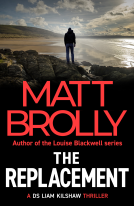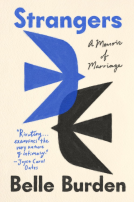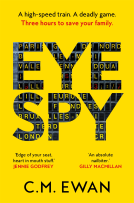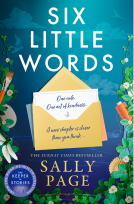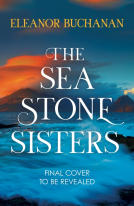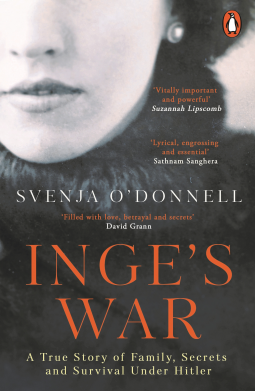
Inge's War
A Story of Family, Secrets and Survival under Hitler
by Svenja O’Donnell
This title was previously available on NetGalley and is now archived.
Send NetGalley books directly to your Kindle or Kindle app
1
To read on a Kindle or Kindle app, please add kindle@netgalley.com as an approved email address to receive files in your Amazon account. Click here for step-by-step instructions.
2
Also find your Kindle email address within your Amazon account, and enter it here.
Pub Date 6 Aug 2020 | Archive Date 30 Jun 2021
Penguin Random House UK, Ebury Publishing | Ebury Press
Talking about this book? Use #IngesWar #NetGalley. More hashtag tips!
Description
'A lyrical, engrossing and essential read' - Sathnam Sanghera
'A superbly nuanced reclamation of history and family secrets' - Brian Van Reet, author of Spoils
What does it mean to be on the wrong side of history?
Svenja O'Donnell’s beautiful, aloof grandmother Inge never spoke about the past. All her family knew was that she had grown up in a city that no longer exists on any map: Königsberg in East Prussia, a footnote in history, a place that almost no one has heard of today. But when Svenja impulsively visits this windswept Baltic city, something unlocks in Inge and, finally, she begins to tell her story.
It begins in the secret jazz bars of Hitler’s Berlin. It is a story of passionate first love, betrayal, terror, flight, starvation and violence. As Svenja teases out the threads of her grandmother’s life, retracing her steps all over Europe, she realises that there is suffering here on a scale that she had never dreamt of. And finally, she uncovers a desperately tragic secret that her grandmother has been keeping for sixty years.
Inge's War listens to the voices that are often missing from our historical narrative – those of women caught up on the wrong side of history. It is a book about memory and heritage that interrogates the legacy passed down by those who survive. It also poses the questions: who do we allow to tell their story? What do we mean by family? And what will we do in order to survive?
Available Editions
| EDITION | Other Format |
| ISBN | 9781529105452 |
| PRICE | £16.99 (GBP) |
| PAGES | 320 |
Average rating from 84 members
Featured Reviews
 Kim M, Reviewer
Kim M, Reviewer
Well crafted and beautifully written book. A story that deserves to be told. A book that will stay with me for a long time.
 Cressida H, Reviewer
Cressida H, Reviewer
I’m absolutely captivated by world war 2 stories nd peoples struggles. Such suffering yet such amazing strength to live and tell the tales of such hardships. Fab read and highly recommend
 Kevin M, Reviewer
Kevin M, Reviewer
Whilst this is by no means the first account of the experiences of the German civilians caught up in the turmoil of the closing months of the Second World War it may, perhaps, be destined to be regarded among the most evocative. It is told by the granddaughter of a young woman who lived with her family in Konigsberg, now Kaliningrad, who discovered the story from her grandmother many years after the events described.
Through this second hand account the reader learns of the impact of the rise of Nazism and the way in which the lives of ordinary people in Germany were slowly, but irrevocably, changed forever. The experiences of civilians in the German eastern provinces were particularly harrowing as they faced not only the collapse of their world as defeat loomed, but also the violence and destruction from the advancing Soviet forces. Those forces had advanced through the Soviet Union territories occupied by the German Army during their blitzkrieg advance of 1941 and had seen evidence of the many atrocities they had committed; as such, they had every reason to wreak a terrible vengeance on the Germans they encountered in their advance.
This story tells of the escape of Inge’s grandmother’s family and the difficulties they subsequently experienced as refugees, before they eventually settled and found new lives in West Germany. It confronts and acknowledges the ‘war guilt’ of the German people, whilst allowing the reader to experience sympathy for the many German civilian refugees who were displaced by the Soviet occupying forces. It is a deeply moving account that balances the need to place the unfolding story in a historical context with a very personal account of the experiences of just one young woman as she struggled to survive as her world fell apart.
A beautifully written story that deals with life under Hitler and how decades on it still affects survivors, it's a story of hope, love, loss and redemption, that touches the heart.
 Helen K, Educator
Helen K, Educator
I would recommend this to anyone, and everyone. A study of survival, suffering and resilience during World War Two. The author tells the story of her grandmother who over the years reveals her history from a childhood in East Prussia - then part of Germany, now part of Russia - through a devastating war, to the present day. There are revelations, tragedies and reunions. It is extremely well-written and engrossing from beginning to end. Inge is a woman to be admired.
I would like to thank NetGalley and Ebury Press for an advance copy.
 alison r, Reviewer
alison r, Reviewer
This is the story of a time in history and the life and pain of Inge.
Inge hasn't spoken a lot of what happened but when her grand daughter visits what is left of Königsberg she begins to tell her story.
A story that will take you to the Jazz bars of Berlin and a carefree life through to the end of the war and the hardships endured. And a final secret.
 Felicity K, Reviewer
Felicity K, Reviewer
A fascinating book about an aspect of WWII that I had not heard about before. It gives you an insight into the lives of people caught up in factors they have no control over. Recommended to those who enjoy reading this type of historical story.
 Jane W, Librarian
Jane W, Librarian
This is an important book - and a powerful, sensitive biography.
Svenja O'Donnell begins a journey of discovery as she shares with her grandmother her visit to the latter's birthplace - an visit which begins to transform her relationship with Inge, who she has only ever known as distant and lacking in emotion, as long hidden secrets of betrayal and abuse are gradually revealed.
The author vividly conveys the difficulties of living in Germany under Nazi rule during World War Two and the struggles for survival. Assumptions are challenged and ideas of right/wrong become more nuanced. Conditions were horrific - and made worse, or not, by the how other people behave.
I found this to be a gripping book; not an easy read - that would have trivialised the subject matter - but one well worth doing. Once started, I couldn't put the book down.
 Justine S, Reviewer
Justine S, Reviewer
A great book that is well written and a genre that i enjoy reading from time to time. Inge's War is a mixture of family and history and is written in a very empathetic way.
I didn’t realise when I requested this that it was non-fiction, so the style was jarring to begin with. I soon fell into the rhythm of the narrative however and the tale told is a captivating one. Perhaps enough time has now passed for both sides of the war to be told, as this is the second German perspective of World War II I have read in as many months. Being the story of an ordinary family living in Germany and caught up in the times, this is heartfelt, touching and powerful by turns.
Svenja retells her grandmothers story through conversations, documents and photographs that have survived the years. Having never been all that close to her grandmother, who Svenja describes as a self contained and difficult woman, a trip to Konigsberg where Inge spent her youth is enough to kindle a relationship between the two women. Finally Inge begins speaking about her past, first retelling the lighter and more innocent times before the story naturally moves into descriptions of war torn Germany, of authoritarian rule and crimes committed in their countries name. The story isn’t complete, there are gaps where Inge didn’t speak of all the facts. Where possible Svenja has filled in the missing pieces with additional research and by speaking to other friends and family, but the patchiness at points only adds to the veracity of the tale.
The concept of German guilt is a constant backdrop to this story, how could it not be? Even Svenja herself, born long after the last concentration camps were closed and the men responsible were tried and judged, feels it. It is in the bones and blood of every German, it is felt every time the war is brought up or taught in class. But it isn’t the only thing here. At the heart of it, this is a story of people just trying to survive in a world that’s gone crazy. Trying to find some measure of happiness and normalcy in the darkness. Inge is a young girl of sixteen when things really start kicking off, she is yet to fall in love or to do any of those things girls approaching adulthood do. She is finding her way through a world that makes no sense and she is naive in many ways. She makes mistakes and pays dearly for them. She loves and she loses, she feels triumph, grief and heartbreak.
Inge’s tale is strangely touching, even told through the filter of memories so many years later. I found myself captivated by events and the people described. Even knowing how much of the story is to end, I so desperately wanted it to end differently. The tale takes you not just through the years of war torn Germany, but through Russia’s encroachment into East Prussia, the panicked evacuation and the moment of surrender. But it doesn’t stop their. The evacuation into Denmark of hundreds of thousands of Germans and the fate of those with no other means of support. The past moving into the present and how the boundaries of Inge’s world just kept shifting and changing.
This is a story of love, of loss, of betrayal and heartbreak. It’s touching, poignant and educational. I learned about aspects of the post war years that I had no idea about. It’s a fascinating and insightful insight into the life of the German populace during and after the Second World War.
Many thanks to NetGalley for my free ARC of this title.
 Susan R, Reviewer
Susan R, Reviewer
Author Svenja O’Donnell is half German and half Irish, living in Paris, so has links around Europe. During most of her childhood, she was not particularly close to her elderly, cold and disapproving, German grandmother, Inge. However, it was a spur of the moment trip to Konigsberg, previously in East Prussia, where her grandmother was born, that led her to establish a closer relationship. Konigsberg was, O’Donnell was told by friends, not anywhere that tourists visited and, indeed, she was disappointed by the town she found – modern, with wide streets, lots of traffic and a lack of visual beauty. Yet, when she spoke to her grandmother to tell her where she was, she heard the emotion in her voice.
Ingeborg Gertrud Wiegandt was the beloved only child of Albert and Frieda. They had a comfortable and secure life. Albert was a wine and spirits importer. Frieda a housewife. Together, they gave their daughter a loving home life – she was indulged, a little spoilt, and, on Friday, her father would leave his office and take her to a café for hot chocolate. Into this life of little treats, love and attention, war came to change things. Neither Albert, not Frieda, supported the Nazi party – they were, the author states, “the people whose disagreement was quiet or unspoken.” Yet, it is obvious that O’Donnell is uncomfortable when she writes that Albert brought a house from one of the 3,170 Jewish citizens still in the town in 1933, when the Germans come to power, and that Inge still struggled with guilt at her inability to recall the name of a Jewish girl, forced to leave her education, as laws gradually limited the freedom of those for whom the Nazi presence was felt as a cold, menacing shadow, invading every aspect of their lives.
The author listens to her grandmother’s stories and begins to try to investigate on her own. What happened to her grandmother, after war was declared and she left for Berlin to study at Lette Haus, a college for young woman in Berlin. Who was the man she loved and what happened to a young couple, whose life was interrupted by war?
This is a moving and interesting read. O’Donnell tells the story of her grandmother with respect and honesty. It is about people who experienced all the ordinary ups and downs of life, but in a time which made the ordinary dangerous and difficult. Even going dancing could result in trouble, if ‘degenerate’ Swing music was heard – meaning that guards had to be posted at the doors, so that those dancing could switch to a more sedate foxtrot, at any hint of danger. Overall, this is an excellent choice for anyone interested in social history, the history of women or WWII in general. I received a copy of this book from the publisher, via NetGalley, for review.
 Angela H, Reviewer
Angela H, Reviewer
An excellent novel, evocative a sense of times past and the struggles therein. Excellent plot and well drawn characters. An very good engrossing read in these difficult times. Looking forward to the authors next book
This is an amazing book and one that should be on the secondary school curriculm in all European countries. Two sides to every story and the author has done a great job in showing both sides in an unbiased manner - at least as unbiased as you can be when dealing with close and much loved family during such a traumatic time in Europe's history. I was fascinated by the whole tale and the way it was written to unwind the tangled ball of memories. With thanks to NetGalley and the publishers for the opportunity to read and review and e-ARC of the title.
 Heather R, Reviewer
Heather R, Reviewer
I loved this well-written and moving book. It tells a fascinating story from an unusual viewpoint, and the author skilfully manages to avoid painting a stereotypical picture of wartime Germany. I really couldn't put this brilliant book down, and would thoroughly recommend it.
 Dave W, Reviewer
Dave W, Reviewer
There are always a minimum of two side to history or two opinions and the Second World War is a fine example. Not all Germans were Nazis obviously those at home manning the fort may of found the first part of the war different to the English but the evils of war still got them. I've often wondered about your average German who supported their army but there had to be a time when they knew they just knew. For some it may have been the news reels that they saw afterwards, some despised Hitler and his party before the war they saw they saw the plight of the Jews and other The rest fell in between somewhere, but most didn't know the full extent of this evil till it was shown to all the world.
So after all that Inge's War, is the story of Inge's journey for want of a better phrase as was told by her to her Granddaughter Svenja. It's an eye opener with historical detail and the pain that lasted into the 21 century for some. It is a book to open any ones eyes to the horrors that ripple through the whole country and its not all pleasant but there is fun for a couple of teenage girls until well everything changes one is left pregnant and the simplistic life or as simple as it can be in any country at war specially in the last century . It's not great this century but in Western Europe recent wars have not effected life in the same way I think it's fair to say.
The details are deep the emotional journey can be heart breaking but it is real and this is unmistakable as you read on. I felt at times i was imposing on others private secrets but that's what this is the story of Inge's life a story that is worth telling, it will show you the strength of the human willpower to forge on and knowing that your country isn't what you expected that the behaviour of others does have an impact on others it just how many that is the real question.
How ever this is a book review so I should tell you that its a book i feel glad to have read in the way I feel privileged to be allowed into the private life of this family and when you read it which i hope you do this will all make sense (well i hope it does). So yes five stars seems mean but like life we live with the restrictions we have and push on till six stars becomes the new normal. 🤔
 Douglas O, Reviewer
Douglas O, Reviewer
This book is an important contribution to history. History of war often ignores the effect on families where wives become widows and children lose parents. These are the long term effects of war and social upheaval. History too is not only about major events or famous names. It needs to be traced to the lives of ordinary people. That is what this book does,telling the history of the period before,during and after the Second World War in terms of the author's own family. Faced with a grandmother,Inge, whose experience are the key to understanding the family history but who is reticent about revealing all that happened to her,the author works at her relationship with this reticent woman and at the same time researches three generations deeply affected by history. The story is compelling and sad but also gives important insights into what ordinary Germans thought of their leaders and how they too were damaged. The book is a brilliant piece of research,well written by an experienced journalist. It becomes obvious that the author too has been affected by researching her family's story. The repercussions of war persist down the generations. This book is a superb contribution to history. I recommend it.
 Cecilia W, Reviewer
Cecilia W, Reviewer
I have literally just finished this book and it’s made a huge impression on me. Inge is the author’s grandmother and I wonder, as she does too at the end of the book if she should have started the journey into her grandmothers past at all.
Inge was 15 at the beginning of World War Two and lived in Konigsburg in East Prussia. Initially the war had little impact on her young life where dancing and flirting were the most important things on her mind. She leaves East Prussia to go to study Berlin where she finds friendship and happiness and love with a family that takes her in.
As soon as her lovers call up papers to join the war arrive in the post life turns from lightness and laughter and dancing all night to jazz tunes to darkness difficulty and survival. Inge’s story is one of literally doing anything to survive.
There are few stories of an ordinary young girl’s experiences from Germany during those years of war - when she had no control over her life and then the awful time at the end of the war when things were almost worse.
The author’s journey to discover her grandmother’s story is almost obsessional but understandable and makes for fascinating and gripping reading and even had me in tears at one point. I can not recommend it more highly for anyone who is interested in all sides of the story of the appalling World War Two.
This is a really well written book, lots of detail and I thoroughly enjoyed reading it. The story is written from two perspectives, Inge and her granddaughter who is a journalist. The story deals with a young girl Inge growing up in pre war Germany and her experiences and tells of how her life changes when the war comes, her first romance and then adapting to motherhood.
A beautifully written book The writer takes us on a tragic family journey through Germany both pre and post second world
This is a story of survival through despair,and violence of choices that are forced to be made, and of all that war can take.
This is so well written and descriptive that the reader can almost feel the harsh north winds of East Prussia..
Excellent read.
 Reviewer 421976
Reviewer 421976
This is a story that needs to be told, and people need to read it. Thank you NetGalley for the opportunity to read and review this hauntingly beautiful book.
 Monica H, Reviewer
Monica H, Reviewer
I was in two minds about requesting this book from Netgalley due to the subject. My maternal family are German speaking Italians from Northern Italy and my paternal family are from the UK. I don’t know much about my mother’s struggles during the war other than her fears particularly of the Russians and I know some of what happened to her and her village. This book helped me understand more about her depression and her reluctance to speak about the time. Inge’s grandmother could be my mother with the secrets which my mother took to her grave. I thought the book was really well written and with so much compassion. It really opens your eyes to what happened during this terrible time both sides of the Channel and I am so pleased to have read it. People suffered so much and it is good that we understand it. I empathised with all the people in the story and felt for them all. I hope this book goes viral as it deserves that. The author’s research must have been intense and filled with sadness as well as joy – well done you
 Emily S, Reviewer
Emily S, Reviewer
It was interesting to read an account from the German perspective, not just any German perspective but from Königsberg now Kaliningrad. By the end of the war these German citizens were shunned by their own country, yet were tainted with the same brush by the rest of the world.
Inge's family lives comfortably in Köningsberg yet by the end of the war they have lost everything. Their story tells of the repercussions of that loss but also how, by tiny twists of fate, people's lives can be totally changed, for the good or the worst.
There is a of comparison in the media at the present time between the Lockdown and WW2. This book shows, especially in Germany, that this was not the case. Starvation, rape, poor health and grinding poverty were the norm and this book shows how truly lucky we are to be living now and not then.
 Clara C, Educator
Clara C, Educator
This was a wonderful story and another great take on how the Holocaust affected so many innocent people and many generations afterwards. Inge was born to a German mother and an Irish father, but she knew very little of her heritage. She knew her mother's parents fled Königsberg in Germany because of world war two and only when she contacted her grandmother living in Königsberg now known as Kaliningrad and in Russia rather than Germany she learns of her past and what really happened. It was a revelation to her. This story highlights the love, challenges, heartbreak hardship and resilience that knocked her and others like her down so often but that also made her strong. It shows how secrets that have the power to destroy can also be the reason for man's survival!!!
 Gemma K, Educator
Gemma K, Educator
I have been reading lots of WW2 stories lately and this one was by far the best. This story touched me and has stayed in my heart. Inge's War tells the story of Inge and her life in Nazi Germany and how she and many others survived under Hitler. The characters were easy to grow attached too and education too. Would highly recommend to anyone after something inspiring.
 Patricia H, Reviewer
Patricia H, Reviewer
I’ve read a few books over time about stories relating to the war years, but this book is a personal story and deeply moving. I defy any reader not to be moved by the content. Thank you to Netgalley and the publisher for this advanced copy. I hope the book sells really well the author deserves it. Would thoroughly recommend.
 Carol B, Reviewer
Carol B, Reviewer
An excellent and very moving book chronicling the experience of one woman and the life she discovers her Grandmother led. It shows how we can live with someone without really knowing a great deal about them apart from what they choose to show. Thus was a difficult read at times because of the subject matter but well worth it.
 Stacey C, Reviewer
Stacey C, Reviewer
I have read a lot of novels about The Holacaust and also about life under Soviet Rule but this is the first time I have read a book about this time period from such a uniqe perspective.
Svenja had never felt particularly close to her grandmother who was aloof and often crtitical but all that changed when Svenja decied to visit the place where her grandmother grew up. A place named Konigsberg which once was part of East Prussia.
As a child Svenja was aware of the guilt that those of German heritage can feel when the subject of war comes up, a desire to avoid the subject in case she found out something unsavoury. Much is known about the plight of Britain during the war and various other countries under Nazi rule but this book is unique in that it captures what it was like for ordinary citizens of Germany.
Her visit to her grandmother Inge's former hometown opens the floodgates on the past in most unexpected ways.
The author managed to walk the line between well-researched and dry. The use of a mixture and facts and photos brought home the fact that her story is one that was shared with many others.
Not only was the story itself engaging but the historical and sociological context were both highly fascinating.
An eye-opening read.
 Librarian 107287
Librarian 107287
Wow, what a read. It might be more poignant to me as my husband is currently trying to trace his family from Pomerania, a little way west of East Prussia but large amounts of this book could apply to his family.
I found the mix of historical, political narrative with the personal excellent. The descriptions of place and personal reactions to the story given by Inge are heartfelt. Either Inge was an excellent raconteur and/or the author's research ensured that she knew in detail what places were like at certain times. I read the book quickly finding it a compelling read. I was particularly interested in the descriptions of the sea passage and seeing the sinking of the other refugee boats. As a School Librarian I have promoted the reading of "Salt to the Sea", by Ruta Septys. O'Donnell's book confirms so much of the fictional lives of those who were aboard the MV Wilhelm Gustloff in the fictionalised version.
O'Donnell's depiction of the German guilt is interesting and it seems from her story that this is still a problem today. As we have found in recent years there are atrocities performed in the heat of war by most armies. It is not something to be proud of but the discussion as to how to pay reparations and ask foregiveness and ensure "the end does not justify the means" should be discussed. This book setting out the facts goes some way to starting the conversation. The figures of death both German and Russian, soldiers and civilians are enormous and stark. The lack of humanitarian aid given by the Danes is something I had never heard about and because we here in the UK have not been invaded for so many centuries I do not think we can properly relate to the feeling of revenge. These issues were all dealt with in a sensitive manner,
This is a remarkable book. One that I will promote with the History Department. I have come across few books which deal with the subject of German civilians during the war written in English. I have recently been asked for books about how German propaganda was used in World War 11, this gives a number of insights and examples of the tightening grip of the Nazi Party on freedom of expression and thought. The feeling of dislocation in your own country is also dealt with and so could be of interest to anyone looking at how refugees are treated.
In some ways the story of what happened next after Inge met Wolfgang that last time is of interest to me. How did Inge become more affluent? How much more did she have to fight to pull the family out of poverty? How did she recover and what was life like in Germany in the 1950s and 1960s? These are questions that I feel are unanswered and could be as interesting as the war years.
A tale of the 1930s and WW2 through the eyes of a young German woman. Clearly based on the family story of the author, it is packed with historical content and information passed on from her Grandmother. In some ways it reads more like a non-fiction book than a novel, probably because of the huge amount of research the author obviously put into the task. It is clear how passionately she feels about the story, the era and the difficulties faced by those associated with Nazi Germany.
Thank you to Svenja O'Donnell, the publishers and #NetGalley for the opportunity to read this book.
 Tatiana S, Reviewer
Tatiana S, Reviewer
This is the story of the author's grandmother in East Prussia during World War II and how the war affected the Germans. I have read many books about the war and find this pont of view very interesting..
 Kerry F, Reviewer
Kerry F, Reviewer
This book was different to my usual genre, I thoroughly enjoyed reading it though. Kept me gripped from start to end
 Samantha O, Reviewer
Samantha O, Reviewer
A new perspective on the horrors of WW2, following the authors grandmother Inges story- living in Eastern Prussia, how they suffered through the war, through poverty and starvation, later seeking asylum. Very rare to read an account from the German civilian point of view, this gives a much more rounded perspective of WW2.
I have read many books regarding WW2 but not a biography and not an account of how the Germans suffered in these times.
Svenja O’Donnell a journalist, tells us the story of her grandmother who lived in Konigsberg in East Prussia. The town know ones knows of today. Living in a normal German family is the story of what atrocities and hardships they endured. When she goes and visits the town, she finds out from her grandmother Inge what happened.
This is a beautifully written story that flowed easily. From the jazz clubs of Berlin to gaining asylum in Denmark. While the men went off to war how the women and children survived. From the women taking men’s work, while other women and children dying from starvation. This story everyone should read as it shows that it was not just the Jews that suffered in Germany and Poland, but the Germans were too. Not everyone in German was with Hitler and because of that many were ostracized and shunned. 5 stars from me.
 Sarah K, Reviewer
Sarah K, Reviewer
A poignant story, unique in it's perspectives and leaving a memorable impression.
This book gave me plenty to think about that I had never really considered. How does it feel to be on the losing side of a war that you never supported? The story gives insight into the hardships of war from a totally different angle.
Thought provoking and definitely well worth reading
 Sarah C, Reviewer
Sarah C, Reviewer
This is a fascinating book, an exploration of O'Donnell's family history that takes us throught the build up to WWII and then through the war and out the other side. It's the story of O'Donnell's grandmother, who is a young girl growing up in middle class security in East Prussia in the 1930s.
It's a time and place that have always interested me. What did people think? What did people know? How do you look back on your youth when you've lived it in that context?
There was lots of information here - I hadn't known anything about East Prussia, or about German refugees in Denmark. I was aware that life was incredibly difficult in Germany at the end of WWII, and Inge's experiences are personal and yet universal.
I am so pleased to have read this book.
The story of a German family in micthe lead up to, during and the aftermath of WWII. It’s the story of the ordinary Germans, not necessarily supportive of the Nazi regime but who kept quiet through complacency or fear until it was too late. The author tells her family history based on conversations with her grandmother and independent research creating an interesting and powerful book. I enjoyed this immensely and learned much about the suffering of people who are not usually discussed in the telling of WWII.
 Stacey D, Reviewer
Stacey D, Reviewer
This book is the story of the author's grandmother Inge and the journey she went on as a German in East Prussia during the 1930's & 40's. I have a keen interest in WWII & the Holocaust but I had never read a book looking at the perspective of a German civilian nor did it ever occur to me to do so before I came across this.
The book goes from recent times when the author had conversations with Inge back to her life during Nazism.. It describes Inge and how her experiences changed her as a person. I enjoyed the personal aspect of this, it adds more depth to the story telling and it created emotion.
There was also facts showing that the book was well researched. I enjoyed the mix of fact with a personal story. I was ignorant to the plight that befell the German population prior to this. It is a very personal family story that makes you feel intimately involved.
If anyone needs to be reminded of the benefit of 75 years of peace in Western Europe, this is a must-read. What starts out as an 'everyday story of girl meets boy' gradually reveals the horrors visited on the civilian population by war. I found this a very moving book, especially towards the end. Once I'd got into it I couldn't put it down.
 Gillian F, Reviewer
Gillian F, Reviewer
I felt privileged to be allowed to read of Inge’s war and all that she suffered and went through. What an awful time it must have been for her. So young to be going through experiences such as these.
I was extremely moved by how strong she was in her determination to get through the events at the close of the war. Events which left an indelible stain but she was strong enough to share them for us to read. There is great sadness in this story but there is also triumph and love. A book very well worth reading.
 Penny C, Reviewer
Penny C, Reviewer
What a brilliant book. Absolutely amazing written with such compassion.
Too often we read about Hitler and his atrocities but hardly ever about normal German people and all they had to go through.
It is a book that everyone should read.
I can’t recommend it enough
Its no secret to those who know me that I have a real fascination with history and love to read both fiction and non-fiction books in this genre. Having read quite a few books lately that focus on the holocaust, when given the chance to read a book about the same period of time but from the perspective of a German survivor of the war, I couldn’t refuse.
I always find it hard when writing a review of a memoir as they are not a work of fiction but someone’s actual life that they have entrusted to the reader and I worry about doing their story justice. Svenja O’Donnell was always intrigued about her grandmother Inge’s past. They had not always had a close relationship, but after a trip to the place where her grandmother grew up, a place that technically no longer exists, she finally gets to understand that maybe the distance she has always experienced was a coping mechanism and the only way her grandmother had been able to continue living through everything she had experienced.
Inge’s childhood as a German living in East Prussia appeared to be relatively normal, in fact even during the early stages of WW2 her family were not really touched by events that were happening in other parts of Europe. It was almost as thought they were forgotten about. In part their lives were easier due to the fact they found it better to say nothing in public, despite what they may feel in private, but that sentiment can still be true today. It was only towards the end of the war, with Russia making advances that Inge and her family had to face the true realities of the war. By this time she had already been abandoned by the father of her child and she found herself taking charge of her parents who had all but shut down, not knowing what to do. Making a treacherous journey to a country that would also shun them once the war was over, they became the refugees of the war that we know little about. Having lost everything, they had to start again and find a place in a very different world.
Inge’s war has certainly opened my eyes to a little bit more of this time in history and shows that we can forget that there were also casualties for the German population. Not everything is black and white and quite often people can be found guilty just by their place of birth and not just their actions. If it was not for O’Donnell’s determination to uncover her family’s past it could have been a part of history that could have been forgotten.
 Sandra M, Reviewer
Sandra M, Reviewer
What a fascinating read! The very personal story of one woman and her life, family, loves and tragedies during the inter – world war years and later living in East Prussia, northern Germany and Denmark up until her death in 2016. This story is told through the pen of Inges’ journalist granddaughter who undertakes the investigation of her life that takes her all over Europe to uncover the mysteries that her grandmother is reluctant to reveal.
What I found so riveting about the story was the description of the attitude of the German people towards the Nazi regime from their acceptance and welcoming of the rise of national socialism in the early 1930s, then fading to distrust as the early successes for Germany in WWll were reversed from their defeat at Stalingrad until the War’s end.
Without going to the lengths of writing about the trials and tragedies of Inge’s life here, - you must read the book! – this story shows us the very personal life lead by ordinary Germans who by living in that artificial creation (after WWl) of East Prussia were looked down upon by their fellow countrymen. How they overcame that stigma and lived their lives as best they could when Germany eventually became rehabilitated in the 1950s.
I've read an amount of books, both fiction and true life stories that took place during WWII, but this is the first I've read that is set in the former country known as Prussia, providing an insight into wartime lives and events that took place in this part of the world at this time. The tale is a true story, mainly recounted in the present day by Inge's grand-daughter,Svenja O'Donnell, who seeks to find the truth behind her grandmother's subdued nature and reluctance to speak of her time during the war. We are first introduced to young Inge, who lives with her parents in Konigsberg, East Prussia, prior to the start of the war. She enjoys the best hot chocolate in town with her father every Friday at the 'Cafe Berlin' and she has no more childhood concerns other than outdoing her classmates at school. However, as she grows up we discover, as a typical teenager she begins to want to see more of the country she lives in and strives to experience more things, not always with her parents. She departs for Berlin to study at Lette Haus, a young college for women, where Inge wishes to follow her interests in fashion. However, as war begins so Inge's life begins to alter. As O'Donnell speaks to her grandmother in the present day, O'Donnell describes how it is at first difficult to develop a rapport with her grandmother about these times and get her to openly speak about them. However, over a course of time and encounters, Inge begins to describe the events of her life during the war and the unimaginable hardships she and her family encountered, yet survived. The events not only tell a tale around a suppressed love story, but also how such events during the war forced people to behave in a certain way, not always seemingly morally right, but often a means of sheer survival of such times. Inge and her family are eventually forced to flee Prussia, seeking refuge in Denmark until the end of the war, finally managing to return to Germany, but not welcomed as the people they once were. O'Donnell recounts her grandmother's story with such empathy, providing descriptions that create a real sense of the places they lived and the hardships they suffered, alongside the various relationships between people during such times. O'Donnell is ultimately looking for the one event that her grandmother seems so reluctant to share and knows she is holding back, until one evening the story concludes and O'Donnell then feels guilty and reflects on whether it was really her place to unveil the past for her family. This book enables you to understand how initially the people of Prussia seemed protected from the effects of the war, but inevitably as the war developed and the Russian Army invaded, and so a life once known could no longer be returned to. However, we see that Inge does finally in her latter life, return to a part of the world that she once grew up in. To be able to bring her grandmother's story to life, O'Donnell too visits these places, although struggles to find evidence of these past events through left remnants. This is a story that provides an insight to such horrific conditions people endured at such times, but also exposes the way in which Prussians were treated by other nations due to their association with Germany, during and after the war. It is a tale which not only highlights such treatment, but a tale that needs to be told and known, lest we forget such events in history. My thanks go out to netgalley and Penguin Random House UK, Ebury Publishing for being able to read and review an ARC of this.
 Kristina W, Reviewer
Kristina W, Reviewer
A trip to Königsberg (now Kaliningrad) leads Svenja O'Donnell to contact her Grandmother and start asking questions about her youth.
Her Grandmother was a teenager in Königsberg at the outbreak of the Second World War. O'Donnell seeks to unpick the truth about what happened to her Grandma as she and her family experienced the effects of Nazism first hand and fled their home, with Inge (the Grandma) having to grow up faster than she wanted.
These experiences and those that followed shaped Inge's relationships and her personality for the rest of her life.
As a youth she studied in Berlin and lived with a prominent German family who became close friends and ultimately shaped her life forever.
O'Donnell has worked hard to try and create an unbiased account of her Grandmother's life. Unpicking what lay hidden for decades, O'Donnell discovers what her Grandmother had sought to hide and develops a closer relationship with her than ever before.
It is enlightening to have accounts of those that grew up in Germany during the war that do not focus solely on the Holocaust or other atrocities of war. This is a more social autobiography that provides some insight into the German experience.
O'Donnell has done her Grandma proud.
Thank you for allowing me to read and review this book.
 Louise J, Reviewer
Louise J, Reviewer
I struggled to get into this book (probably more to do with what was going on in my life than the book), and actually stopped reading it for a few months, and nearly didn't go back to it. However I did eventually go back to it and I am so glad I did. This story had me in tears, to think of the terrible things that happened during the war, and to think of it from a German perspective really opened my eyes. Thank you for a brilliant read.
I really enjoy stories of the war because I learn so much. Inge's War is just the same. I learned so much about how the German's also suffered. A good read.
Inge’s War by Svenja O’Donnell
Rating *****. 4.75/5
The remarkable, amazing, and courageous journey of a young girl fleeing the Nazis and Soviets in WWII told by her granddaughter, Svenja O’Donnell. Svenja, a journalist of German and Irish descent didn’t really know her grandmother Inge. Inge was a cold, distant and unloving family member but one year things changed and over a period of years, Inge told Svenja of her desperate journey from Konigsberg in Prussia, to save her daughter, Svenja’s mother, and her parents.
Inge was born into a comfortable life in Konigsberg where she grew up to be quite spoilt and headstrong. Initially she wasn’t affected too much by the political changes in Germany. Later as student, in Germany, she met a wealthy friendly, loving family and the enigmatic Wolfgang. Months later, Inge pregnant and unmarried returned to Prussia. Wolfgang’s rich father would not permit him to marry her.
As the Soviets moved west towards Prussia, the Prussians knew that, after the atrocities committed by the German forces on Russia and her people, there would be little mercy. So it was time to flee. Desperation and hardship followed them through their journey to find sanctuary.
What follows took Inge many years to tell her story of her survival, the horrors, loss, the good and evil of humans and finally, her secret.
Inge’s War gives a totally different insight to Nazi Germany; many people did not want the war and did not support it, therefore were in danger themselves. I hadn’t read anything about the Prussians during this period so found the novel very interesting, formative and told from a personal insight.
Svenja O’Donnell is a very talented writer who brought all the pages to life, told with compassion and truth. Her research and journeys to the various places where Inge grew up, stayed in and survived enabled her today give a rich depth to the novel. One part of the novel which haunts me is what took place in Denmark.
Thoroughly recommended.
I thank Svenja O’Donnell, Penguin and NetGalley for giving me the opportunity to read this remarkable novel. In return I have given an honest and unbiased review.
 Rony C, Reviewer
Rony C, Reviewer
A true story about the 2nd World War but from a German perspective.
The author has always known that her grandmother had suffered terribly throughout the 2nd World War. Still, as she is nearing the end of her life and has the opportunity to revisit her home town of Konigsburg, it seems to allow her to open her heart to her granddaughter and slowly the tragic story of her life is revealed.
This story contains elements that were commonplace during the war. The last farewell before a couple is separated, leading to a pregnancy, rapes of innocent and helpless women, terrible death and deprivations suffered by the people left behind while the men are away fighting.
The difference with this book is that the main character is a German woman and the descriptions described take place in a German town. I must admit I had no idea where Konigsberg was and was actually unaware of East Prussia’s position sandwiched between Poland and Russia. Still, the author brings the place to life.
Inge’s story is a truly horrific one, but despite everything, she manages to survive and finally reveals to her granddaughter a secret she has never revealed before.
This book is worth reading for the story alone but what made it stand out for me was how the German people had to try and survive under the Nazi regime. They were unable to express opinions without the threat of being arrested. They were trying to deal with shortages of everything and then when the war was finally over, due to the position of Konigsberg, being in the path of the Russians, intent on revenging themselves on the German people, desperately trying to escape.
It is easy to forget that there are two sides to every conflict and that the ‘enemy’ also consisted of ordinary people with no particular political bias having to cope with a brutal regime. When the rumours of the concentration camps became general knowledge, I can understand why some of the Germans could not believe that such brutality existed. Others denied any knowledge of their existence. It made me think what would I have done if I had been living under such conditions, it is human nature to survive in any way possible.
I really enjoyed this book, it made me think about how it must have been for the ‘other side’ during the war. It is a story well worth reading and even more heartrending knowing that this is a true story.
Dexter
Elite Reviewing Group received a copy of the book to review
 Sarah B, Reviewer
Sarah B, Reviewer
When the author makes a spontaneous call to her grandmother whilst visiting her grandmothers childhood town she opens up a door to her grandmothers memories. Up until this point Inge had kept herself distant from her family. As she reveals her memories of her happy childhood before the war and then how she survived the war and the tough years after, along with a few surprises and secrets, the family come to understand her more.
Inge's War is an unusual story of the war and its aftermath as it is told from an ordinary German citizens perspective.
A moving story, not always nice to read but a story that should be read.
I was given a copy of Inge's War by NetGalley and the publishers in return for an unbiased review.
Inge's War by Svenja O’Donnell was a very powerful and captivating book about her grandmother's struggles in World War two.
Svenja O’Donnell is the grand-daughter of Inge, Svenja tells her story of Inge's and her family of two generations. That was hidden for sixty years. You will discover the story of a very brave woman caught in a part of history we should never forget.
Inge said "I have so much to tell you," and I am so glad her granddaughter wrote Inges story of a very personal tale of her life.
This books and other true stories of people's lives during World War two should be read, especially in schools and discussed within the classroom.
This book will be with me for a very long time and I highly recommend it.
Big thank you to netgalley and Penguin Random House UK, Ebury Publishing for being able to read and review an ARC of this.
 Brianna C, Reviewer
Brianna C, Reviewer
What a fantastic story this was. The past was so dramatically brought to life when she told her grandmother's story and then retraced her steps by going to the places these events happened. We go on the voyage of discovery with her as Inge opens up and tells what it was like in Berlin and East Prussia, during and after the war. She interlaced the bigger picture in with her family dramas to make a complete and involving story. Along the way she uncovers little known events from history such as what happened to the German refugees in Denmark after the war. Could not put this book down
 Sharon R, Reviewer
Sharon R, Reviewer
Inge's War by Svenja O'Donnell is a truly engaging, honest and enlightening book about Svenja's grandmothers life in Germany under Hitler's regime.This personal story is a important one in the terms of how did the German people cope with this life at that time?
I instantly connected with Inge and her family just because they were so well drawn. This immediately made me need to find out what happened to them and I couldn't put the book down. It was eye opening to read about Inge's life and her real reluctance to speak of the war. My own grandfather served in the second world war and until the day he died, he never uttered one word of what he saw or how he felt. I still do not know even which regiment he served in, to this day. I empathise with Svenja so much at this level and am happy she could retrace the steps of her grandmothers life.
The book describes Inge's family as not being Nazi supporters, so the people who stayed quiet or never spoke about the matter. Then as the story evolves Albert even gets a house of one of the thousands of Jews still residing in their town in 1933. Inge carried the guilt of not being able to remember the Jewish girls name as the Jews were being displaced, forced out of education, and taken away eventually to be murdered in cold blood.
Svenja has woven a story that is partially her grandmothers actual memories and also her own journey of retracing her grandmothers steps, all the while using her investigative journalist abilities. I feel very highly honoured to have read this story as I feel the voices of the people left in Nazi Germany, adrift and scared by this regime need to be heard. Not every German was a Nazi and sometimes people do not want to hear that! A poignant, memorable story I shall always carry with me. I was given the copy of the book by Netgalley and Random Things Tours for my honest review today.
Svenja O'Donnell begins a journey into her family's past, especially concerning her grandmother, Inge. Inge was a young woman living in what was Königsberg, East Prussia during WWII but never spoke about it. It's only when her granddaughter visits the modern city of Kaliningrad (as it is now known), that Inge starts to tell her story. The author finds out about Inge's first love affair which was halted by the outbreak of war, and what her grandmother went through to keep their daughter (the author's mother) safe.
This is a wonderful read, if difficult in places due to the subject matter. I have read quite a lot about WWII but hardly anything about what happened in Germany after the war ended. It was sobering to read about how the population faced prejudice for what happened. We hear a lot (and rightly) about what the soldiers went through, but not so much about the women and children who were left behind and had to pick up the pieces. It was heartbreaking to read about the women who were physically violated but then had to keep silent about it in order to boost the morale of the returning men, and the hundreds of children who died from starvation and lack of medical care.
It was very well-researched and written in such a way that it draws the reader into the experience. You are not just reading facts, but something that happened to a real life person. I do wonder how we would fare if this happened now. I recommend this to anyone with an interest in WWII history.
Thanks to NetGalley and publishers, Penguin Random House UK/Ebury Publishing, for the opportunity to read an ARC.
"My own existence had depended on that moment of flight, on that narrow escape, which I had, for years, taken for granted. That's the trouble with digging up the past, it makes you question your own present."
Svenja O'Donnell is a half-Irish, half-German political correspondent and journalist who grew up in France. One day in 2006 she finds herself in Kaliningrad in Russia (formerly known as Königsberg and part of German East Prussia) and remembering that her grandmother lived there sixty years before, calls to let her know where she is. What she doesn't realise is that this phone call will unravel the mystery surrounding Svenja's family and the secrets her grandmother has never spoken of - about life in Germany under Nazi rule and how her family ended up fleeing Königsberg in the Second World War.
This book is incredible. It weaves together social history with biography, exploring the way that family history is often mythologised and rewritten and passed down to younger generations. The writing flows really well, it almost feels like you're reading narrative fiction until you remember the author is writing about her actual family. The book shows the complex situation of Germans living in East Prussia, who were forced to live under Hitler and then were hated for the actions of the Nazis in the aftermath of WW2.
Inge's War provides a different perspective of a relatively unfamiliar history of the Second World War that I previously knew nothing about. What must have been a difficult undertaking has been transformed into a fascinating personal history, showing the importance of learning about our past.
Inge's War
"A secret lay at my family's heart, unspoken, undisturbed, unsuspected, for decades. I never set out purposefully to unearth it; I was in the middle of my journey before I knew it had even begun."
Past and present are woven together to tell this poignant story of love, loss, endurance, survival, and long-held family secrets.
Svenja's aloof grandmother Inge has always refused to talk about her experiences living in East Prussia during the war. But when Svenja spontaneously visits the city after a recent heartbreak, the women bond over shared pain and Inge finally begins to tell her story. What follows is a narrative rarely heard when we listen to the voices of those who lived during the war; those everyday people who weren't a victim, hero or villain, but simply trying to survive a dark and deadly moment in history.
"But with every war comes layers of suffering, and only by acknowledging it all can we stop hatred from tearing people apart."
True stories are a favourite genre of mine, and the holocaust is an era I've always found interesting, so I knew immediately upon reading the synopsis that I wanted to read this book. Inge's War is a thought-provoking story of ordinary people and ordinary problems in extraordinary times. It tells of a love story cut short by war, and gives a voice to one of the many rarely heard in the narrative of the holocaust: a German who was neither Nazi or rebel. It is also a reminder that surviving war is a lottery of luck.
"When I first began asking about the past, I had hoped for anecdotes of making do, of triumph over hardship. I had feared I might find proof of actions or beliefs that I would struggle to forgive. I had not bargained for this uglier truth... In my dogged search for answers, I had forgotten to ask myself whether some truths were best left alone. "
Lyrical, absorbing and painstakingly researched, it is wonderfully written. The author's journalistic experience shines through as she envelopes you in her family's world, breathing heart and soul into a book that simultaneously educates. She tells the story of Inge's youth, the revelation of decades-old family secrets, examines how much ordinary German's really knew about the final solution and how their silence and inaction impacted events.
Immersive, enthralling, harrowing, moving and heart-felt, Inge's War is a book that needs to be read and experienced. An absolute must-read that will stay with you.
A beautifully written book. Svenja O’Donnell has written a book that you will just immerse yourself in. It’s one of those books you will remember long after you’ve put it down.
Thank you to the publisher and Netgalley for the arc in return for an honest review
 Susie F, Reviewer
Susie F, Reviewer
A beautifully written story, a memorable story about the second world war.
Thank you NetGalley for my complimentary copy in return for my honest review.
 Paromjit H, Reviewer
Paromjit H, Reviewer
Journalist Svenja O'Donnell is of Irish and German descent, she writes a evocative biography of her German grandmother, Inge, originally from Konigsberg in East Prussia, now Kalingrad in Russia, and her experiences and bitter survival of WW2, during and after the war, including fleeing the Russian retribution that followed. Inge has been reticent of her personal history, keeping everything locked up inside, until Svenja calls her from Kalingrad, which results in an emotionally tearful response, that leads her to connect with Svenja, and reveal the trauma and the harrowing life of suffering and starvation, endured by ordinary Germans. Svenja goes on to impeccably research the background of the war to place Inge's poignant, desperate, and heartbreaking story, of doomed love, loss, displacement, and the revelation of secrets kept buried for decades, in context.
There are far fewer accounts of WW2 from the perspective of Germans who never agreed with Hitler, even less from German women who carried the greater burdens of the war, but for understandable reasons, given the savage violence and brutality of the Nazi regime. Many Germans remained silent over their real thoughts and opinions due to fear, only to carry the searing shame and guilt, both collective and personal, throughout their lives, a guilt and shame felt by their descendants. These ordinary Germans had the misfortune to live through one of the darkest and vilest periods of European history, they were the unacknowledged other victims of Nazism, forced to face a barrage of horrors and challenges of the war and its aftermath, such as death, starvation and disease, doing whatever they had to do to survive.
Svenja relates her grandmother's story with compassion and empathy, Inge is a flawed woman with some very human failings, her personal history is related and documented in detail, it tells of the grim realities and the devastation wreaked on ordinary families and the population, the complexities of what war actually means, and more specifically what it entailed for German women and children. This is a moving and thought provoking must read from an author I can only admire in her search for the truth about her family. Highly recommended. Many thanks to Random House Ebury.
 Reviewer 558888
Reviewer 558888
I don’t know what to say. A story which had to be told and I’m glad it was. My mother has now stolen my kindle to read it.
 Beata B, Reviewer
Beata B, Reviewer
*Many thanks to Svenja O'Donnell, Penguin Random House UK, and NetGalley for arc in exchange for my honest review.*
An interesting book giving insight into the life of a German family whose origins are in the East Prussia and who tired to live through the Nazi times while not backing the dictatorship.
Svenja O’Donnell grew up in France with an Irish father and a German mother. During her childhood, she was exposed to the stories at school about German atrocities in the Second World War, which brought shame to her about her partly German ancestry. She looked at her grandmother, Inge, who said that her family are not equal to the Nazis in a suspicious manner since her grandmother rarely spoke of her family’s past in Königsberg, the capital of East Prussia. A curiosity about the past locked deep inside her grandmother’s mind slowly began to open for the author as she called to her grandmother on one fine day, telling her that she’s calling from Kaliningrad — as the city is called now more than fifty years after the displacement that forced Inge to leave East Prussia.
Partly family historical account and partly original field research, this book offers an interesting alternative viewpoint to the history of the Second World War. Many narratives have discussed the atrocities committed by the Nazis in the Holocaust and in the areas occupied by them in Central and Eastern Europe, but few told the stories of the displacement experienced by the Germans who lived in then-East Prussia. East Prussia, with its capital Königsberg, had an important history during the seven-century of its German settlement. The Junker, an important part of German nobility, possessed vast lands there. Königsberg, the capital, was the place that gave birth to Immanuel Kant. During the war, East Prussia managed to be one of the safest places in the Third Reich with its self-sufficient ability that kept the citizens nourished, while other German regions experienced shortages and daily rations. But the advance of the Red Army and the imminent defeat of the Wehrmacht in 1945 changed the landscape quickly.
While reading this book, I got reminded briefly of Oskar’s account in Günter Grass’ "The Tin Drum" which chronicles the escape of the Germans from Danzig by train to the western part of Germany to avoid the capture of the city by the Red Army. But many from East Prussia did not have the chance to escape by train, as Pomerania and the areas around the Danzig Corridor fell earlier, isolating East Prussia further from east and west. The only passage west was by the sea, where Inge Wiegandt and her parents were forced to leave along with thousands of refugees. During the operation, the transport ship Wilhelm Gustloff was torpedoed by the Red Army, sinking her along with between 5,000 and 9,000 passengers, many of them civilians like Inge. It was by sheer luck that the Wiegandts managed to escape to the west in the ship Göttingen, in which the author emphasised that war does not care whether the displaced were rich or civilians, all of them could die anytime and anywhere during the dark times.
Besides the flight, Svenja O’Donnell’s account of her grandmother’s attempt at survival also includes many aspects unwritten in the war. About rape, discrimination from her fellow Germans, and the betrayals from her lover who got sent to the Eastern Front amidst the difficult circumstances Inge was in. The difficult circumstances forced the soldiers to comply with their superiors, giving birth to the infamous Nazi atrocities, while the women like Inge were forced to keep silent as a way of coping with their difficult problems. The complexities of the war are something that the author only realised afterwards beyond the stereotype of ‘good Germans’ who resisted the Nazis by living in exile and ‘bad Germans’ who lent their support to Nazism. There were those who were silenced, who saw the neutral stance as an alternative to the gangster regime of Hitler but did not have any voice during and after the war as the political opinion is difficult to measure in a totalitarian state.
I see this book as an intriguing discussion, to rethink the Second World War not as a ‘German War’, but rather as something equally damaging to the Germans themselves. After the war, millions of Germans from the east of the Oder-Neisse line faced displacement as a result of the Allies’ decision during the Potsdam Conference to cede eastern German territories including East Prussia to Poland and the Soviet Union. The displaced people then settled in East and West Germany, bringing with them stories of their lost home. The author’s attempt to address this issue through her research into family archives and countless field trips for ten years are superb. Inge’s story is only one of the stories that only recently being uncovered long after the war ended when the past wound could finally be seen in a different light by the current generation. It proves something that the present might be constantly changing the past, as more truths are discovered.
 Ellie C, Book Trade Professional
Ellie C, Book Trade Professional
A wonderfully written and very moving story. True stories are a favourite genre of mine, and the holocaust is an era I've always found interesting, so I knew immediately upon reading the synopsis that I wanted to read this book. Inge's War is a thought-provoking story of ordinary people and ordinary problems in extraordinary times. It tells of a love story cut short by war, and gives a voice to one of the many rarely heard in the narrative of the holocaust: a German who was neither Nazi or rebel. It is also a reminder that surviving war is a lottery of luck.



